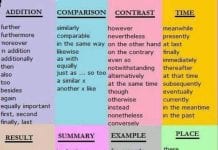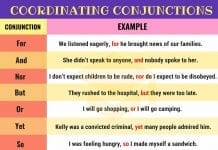Hello English learners! Today, I want to tackle the difference between confused about and confused with. Let’s begin with the word confused, since it is in both phrases.
The word confused is a verb that means to be unclear or to not be able to tell the difference between and object or an idea.
For example:
- I find quantum physics confusing. (I have a hard-time understanding quantum physics).
The word about has several definitions. I often tell my students that the word about means a general idea or many topics within a subject.
For example:
- We were talking about Australia. (We could be talking about the government, economy or its people).
About when used as a preposition (telling location) means in regard to.
For example:
- The professor’s lecture was about global warming.
The word about could also mean close to or near.
For example:
- She is about the same age as her sister; I think she is a twin.
About is also an adjective. As an adjective, about means close to in number.
For example:
- He is about 6 feet tall.
The word about also can mean almost or nearly.
For example:
- I am about finished with my math homework.
Believe it or not, about is also an adjective. This meaning is defined as moving around.
For example:
- The toddler was up and about when she should have been asleep.
The word with means a relationship. When two things combine to become one the word with is great to use!
For example:
- She is with Joe now, she is not dating Ben anymore.
- I like coffee with milk.
- Do you take your tea with sugar?
The word with can be used as a preposition. With can mean accompanying.
For example:
- Do you want to go with me to the movies?
When used as a preposition the word with can also mean having (like a quality).
For example:
- The student is a person with excellent work ethic.
So what about the difference between confused about and confused with?
The main difference between the two is the scope of the subject in which you are talking about. In general, confused about is used when discussing a general concept.
Here are some examples to help clear this up:
- The student was confused about circles. (There are many different concepts that circles contain. We could be talking about the shape, area, circumference, diameter etc).
- To say that the student does not get the general concept about circles it is more appropriate to use confused about in this case.
- The young girl was confused about love. (Once again, there are many aspects about love, and to say in general it would be more common to use confused about).
- They were confused about John. (Normally, when using confused about, more questions need to be asked to figure out what specifically is confusing).
Sometimes, English is more about psychology, especially at an Intermediate and Advanced level, than about grammar.
The word usage allows me to understand what the person is thinking.
Often, when a person uses the words confused about, they might be unsure how to put their doubts or confusion into words.
They don’t know exactly what they don’t understand or do not know how to express exactly the difficulty they are having with the concept.
When someone says confused about, they are inviting the listener to investigate more.
This might help them express their exact difficulty. On the other hand the phrase confused with has to do with a specific concept. Look at these examples to get a better understanding of the use of this phrase:
- The young girl was confused with her feelings.
- I am confused with how to find the area of a circle.
- I am confused with the aspect of a utopia.
The person saying the sentence has narrowed down the topic. The speaker has a better understanding of where the problem originates from but might not know what the answer is.
In English, you may also use the phrase confuse with. This means you are unable to tell the two apart.
For example:
- I often confuse Mary with her twin.
The difference between confused about and confused with is very small, but it gives an Intermediate or Advanced English speaker a clue on how to answer your doubt.
Keep practicing and you will be able to get the hang of it. Try the comment box below. Write your own sentences to practice.
Check out our blog at www.myenglishteacher.eu/blog for more posts!


























